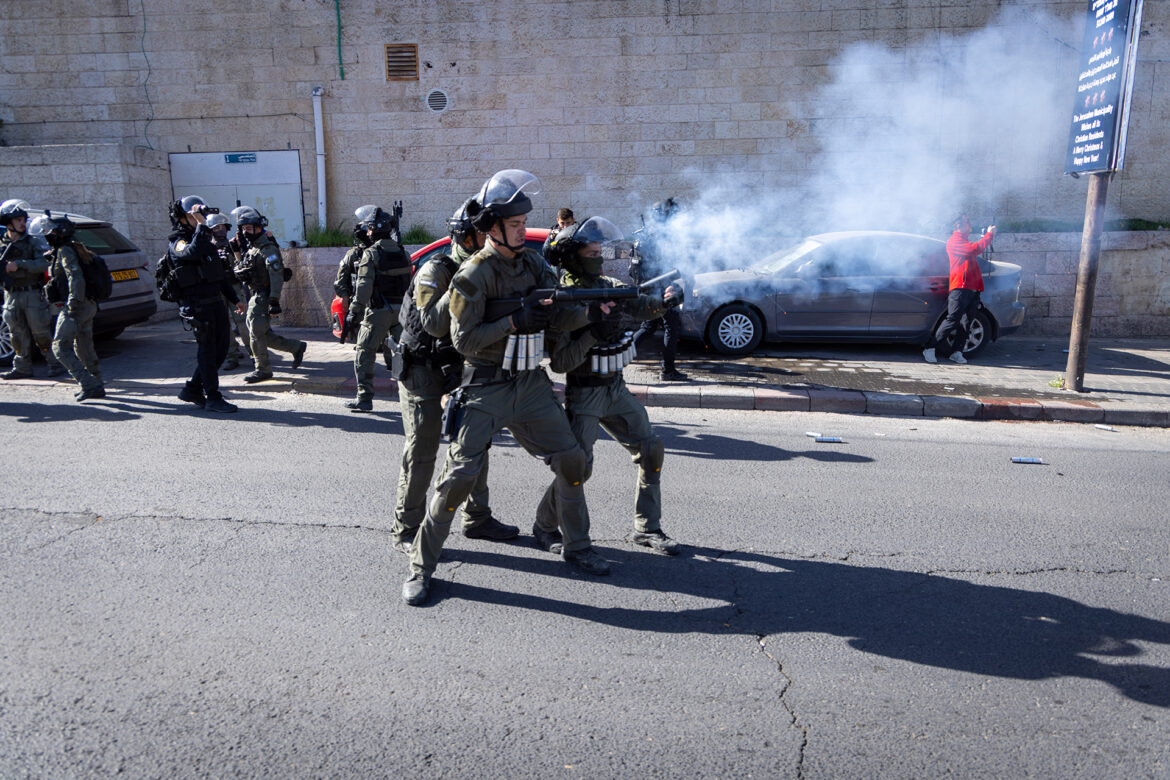Occupied Jerusalem- Jerusalemites unanimously agree that their lives were divided into two parts, “before and after October 7.” Nothing remained as it was in Jerusalem after Saturday, October 7, 2023, in which the “Al-Aqsa Flood” battle began, and the aggression that followed it. An Israeli in the Gaza Strip today turned the page of his first year with many pains that the pages of peace to come – if achieved – cannot be closed.
Tel Aviv Tribune Net asked Jerusalemites how this war changed their way of life? What do they fear most if the geographic war expands to include their city?
The young man Muhammad Dweik says that this war slapped every Jerusalemite who turned away from the basic issue of his homeland because of the concerns of life, connection to the Israelis and their institutions, and daily friction with them, and came to remind him that this is an occupier and life cannot go on normally under his presence.
“The war changed all our concepts, especially because it revealed the depth of racist policies between Arabs and Jews in the city. Although this racism was clear before the war, it was strengthened after it and began to take an escalating and systematic form,” according to Dweik.
Stick to the issue go deep
Al-Maqdisi was forced to submit to procedures that he did not want, and the details of his daily life were turned upside down, and a fierce attack was launched that included all social, economic, and educational aspects. This prompted every Jerusalemite in the city to wake up from their slumber, according to Dweik, and his adherence to his cause, his land, and his home increased, and whoever was thinking of emigrating outside The country reversed this step because the situation requires steadfastness and composure from everyone.
Regarding the fears that this young man experiences as a father of a child, he expressed his fear for his child’s distant future, but he said that he fears more for his near future if the war expands to include Jerusalem.
“The darkest scenario is our forced displacement and loss of the right to reside in Jerusalem, as happened with the Jerusalemites in the 1967 war… I think a lot about what our situation would be like if the war included us, the first of which was how every head of a family could work and provide his children’s daily food… but in the end he did not choose us.” God is in vain for this country. Each of us has a role to play and preserve, and our role is the bond in Jerusalem,” says Dweik.

Exclusiveness to Al-Aqsa
As for Al-Maqdisiyah (F.M.), a mother of 3 children, she began her talk to Tel Aviv Tribune Net by saying that what raised her greatest fears in this war was the settlers’ monopolization of Al-Aqsa Mosque, in light of the world’s preoccupation with what is happening in Gaza and the northern front. Despite its importance, she believes that the occupation has endeavored with all His power to remove Al-Aqsa from the forefront and change the situation there because the flood bore his name and was launched for him.
Therefore – according to the Jerusalemite mother – public Jewish prayer was established and many unprecedented violations were recorded in its squares, while Jerusalemites and the people of the Palestinian interior were restricted and prevented from supporting him and even from reaching him.
This young woman spoke about how her inability to support Gaza is what hurts her most since the outbreak of the war as well. She described this as the painful feeling that all Jerusalemites felt as they saw that the Gazans were paying a heavy price and that Jerusalemites were only able to support them through the economic boycott of Israel because speech in Jerusalem was forbidden. Nasser, a Jerusalemite from Gaza, appeared publicly on social media and was immediately arrested.
As for the fears that she experiences if the war expands, she said (F.M.): “From an innate feeling, I fear for my children and loved ones, because the spread of the war to Jerusalem is not unlikely in light of the presence of this extremist government, especially since Jerusalem is the core of the conflict that Everyone fights over it.”
Silent war
This woman is certain that the silent war in Jerusalem will turn into an open one in which the people of the city will see all kinds of torment. She said: “As human beings, we fear the coming fate, especially since we depend for all our services, such as water, electricity, and others, on the occupation, which will besiege us starting from these services and will deliberately cut them off from us.”
As for the cruelest chapter of the war – according to this Jerusalemite mother – it is the proximity of the settlers and the attachment of their outposts and settlements to the Jerusalemites. “We live next to them under compulsions, and they are closer to us than any Palestinian village, and this of course terrifies us, especially in light of their unprecedented arming campaign that was launched after the seventh of October (October). ).
As for the head of the family, Abu Ibrahim, he said that he actually began storing water for domestic use since the war beat its drums in southern Lebanon, “because that might lead to the expansion of the war suddenly and without warning,” but despite taking this measure, he always thinks about whether he will be able to use it. Is this stored water, or will he, like the Gazans, leave his home with what is in it and be forcibly displaced from it?
This Maqdisi is not optimistic about any upcoming scenario, and whenever he touches on one of them, he feels a pang of pain and the tone of his voice changes to sadness and he repeats, “Oh God, grant us security in our homelands.”



